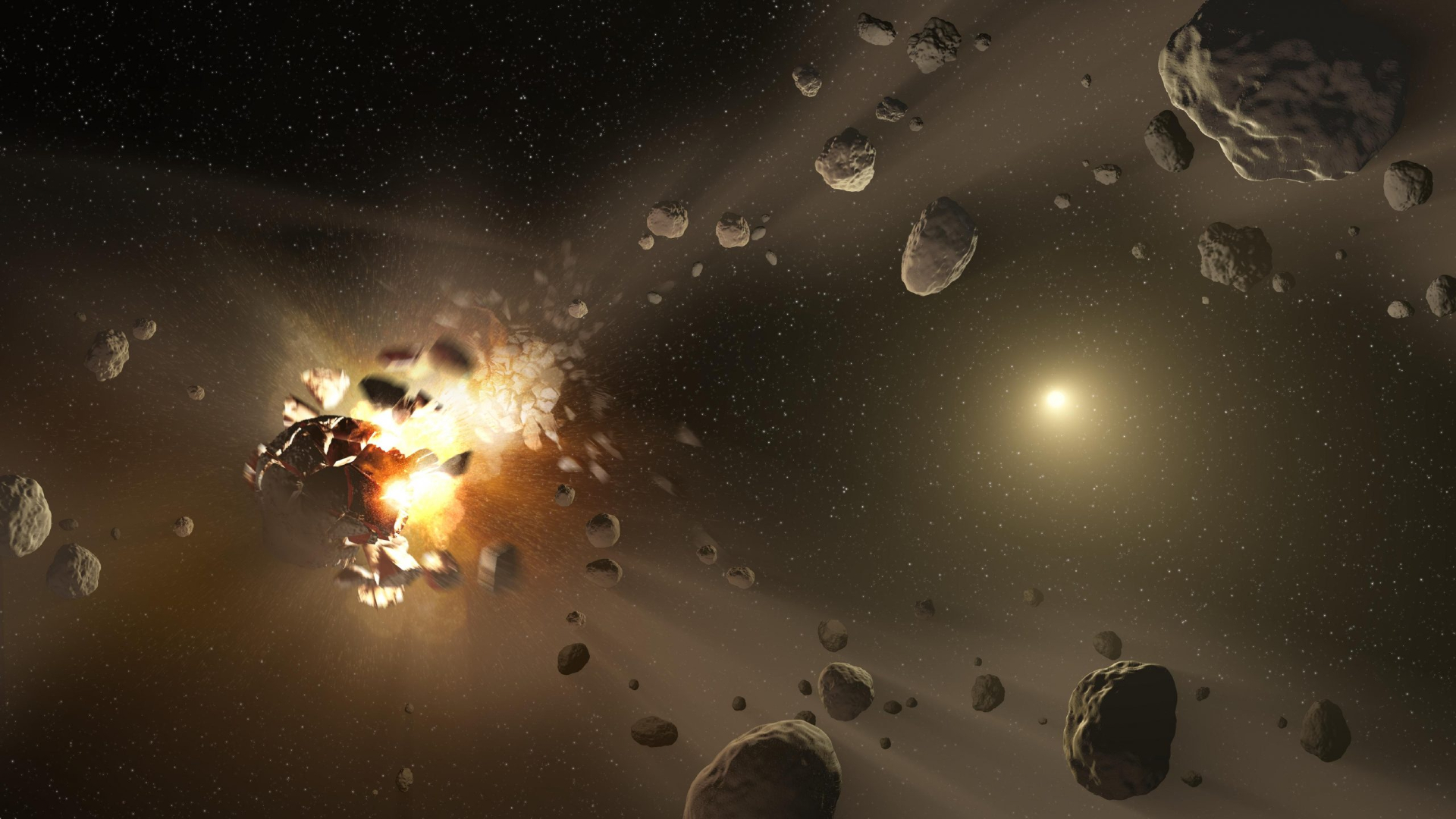'Big Wave' Theory Offers Alternative to Dark Energy
This story was updated at 2:40 p.m. on Aug. 18.
Mathematicians have proposed an alternative explanation forthe accelerating expansion of the universe that does not rely on the mystifyingidea of dark energy.
According to the new proposition, the universe is notaccelerating, as observations suggest. Instead, an expanding wave flowingthrough space-time has caused distant galaxies to appear to be acceleratingaway from us. This big wave, initiated after theBig Bang that is thought to have sparked the universe, could explain whyobjects today appear to be farther away from us than they should be accordingto the Standard Model of cosmology.
"We're saying that maybe the resulting expanding waveis actually causing the anomalous acceleration," said Blake Temple of theUniversity of California, Davis. "We're saying that darkenergy may not really be the correct explanation."
The researchers derived a set of equations describingexpanding waves that fit Einstein?s theory of general relativity, and whichcould also account for the apparent acceleration. Temple outlines the new ideawith Joel Smoller of the University of Michigan in the Aug. 17 issue of thejournal Proceedings of the National Academy of Sciences.
While more research will be needed to see if the idea holdsup, "the research could change the way astronomers view the composition ofour universe," according to a summary from the journal.
To convince other cosmologists, the new model will have topass muster with further inquiry.
Breaking space news, the latest updates on rocket launches, skywatching events and more!
"There are many observational tests of the standardcosmological model that the proposed model must pass, aside from the late phaseof accelerated expansion," said Avi Loeb, director of the Institute forTheory and Computation at the Harvard-Smithsonian Center for Astrophysics."These include big bang nucleosynthesis, the quantitative details of themicrowave background anisotropies, the Lyman-alpha forest, and galaxy surveys.The authors do not discuss how their model compares to these tests, and whetherthe number of free parameters they require in order to fit these observationalconstraints is smaller than in the standard model. Until they do so, it is notclear why this alternative model should be regarded as advantageous."
Johns Hopkins University astrophysicist Mario Livio agreedthat to be seriously considered, the model must be able to predict propertiesof the universe that astronomers can measure.
He said the real test "is in whether they are able toreproduce all the observed cosmological parameters (as determined, e.g. by acombination of the Hubble Constant and the parameters determined by the CMBobservations). To only produce an apparent acceleration is in itselfinteresting, but not particularly meaningful."
Inconvenient truths
Dark energy is itself a hasty fix to an inconvenienttruth discovered by astronomers in the late 1990s: that the universe isexpanding, and the rate of this expansion seems to be constantly picking upspeed.
To explain this startling finding, cosmologists invoked darkenergy, a hypothetical form of energy that is pulling the universe apart in alldirections (note that dark energy is wholly separate from the equallymysterious concept of darkmatter - a hypothetical form of matter that populates the universe,interacting gravitationally with normal matter, but which cannot be seen withlight). In this interpretation, the whole universe is blowing up like aballoon, and from any given point within it, all distant objects appear to bespeeding away from you.
But not everyone is happy with the dark energy explanation.
"It just seems like an unnatural correction to theequations - it's like a fudge factor," Temple told SPACE.com. "Theequations don?t make quite as much physical sense when you put it in. You justput it in to fit the data."
Temple and Smoller think the idea of an expanding wave makesmore sense.
"At this stage we think this a very plausibletheory," Temple said. "We're saying there isn?t any acceleration. Thegalaxies are displaced from where they're supposed to be because we're in theaftermath of a wave that put those galaxies in a slightly differentposition."
Ripples in a pond
Temple compared the wave to what happens when you throw arock into a pond. In this case, the rock would be the Big Bang, and theconcentric ripples that result are like a series of waves throughout theuniverse. Later on, when the first galaxies start to form, they are forminginside space-time that has already been displaced from where it would have beenwithout the wave. So when we observe these galaxies with telescopes, they don'tappear to be where we would expect if there had never been a big wave.
One potential issue with this idea is that it might requirea big coincidence.
For the universe to appear to be accelerating at the samerate in all directions, we in the Milky Way would have to be near a localcenter, at the spot where an expansion wave was initiated early in the Big Bangwhen the universe was filled with radiation.
Temple concedes that this is a coincidence, but said it'spossible that we are merely in the center of a smaller wave that affects thegalaxies we can see from our vantage point - we need not be in the center ofthe entire universe for the idea to work.
- You Decide: What's the Greatest Mystery in Science?
- Top 10 Strangest Things in Space
- What Is Dark Energy?

Clara Moskowitz is a science and space writer who joined the Space.com team in 2008 and served as Assistant Managing Editor from 2011 to 2013. Clara has a bachelor's degree in astronomy and physics from Wesleyan University, and a graduate certificate in science writing from the University of California, Santa Cruz. She covers everything from astronomy to human spaceflight and once aced a NASTAR suborbital spaceflight training program for space missions. Clara is currently Associate Editor of Scientific American. To see her latest project is, follow Clara on Twitter.
